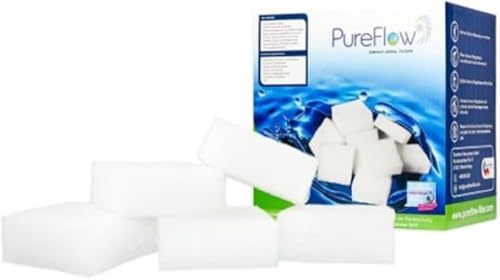Understanding Filter Glass for Pools: What It Is and How It Works
What is Filter Glass?
Filter glass is a revolutionary swimming pool filtration medium designed as an alternative to traditional sand or cartridge filters. Made from recycled glass, it offers a unique structure that allows for enhanced filtration. Unlike sand, filter glass has a smoother surface, which means it doesn’t clump together. This ensures a consistent flow of water through the filtration system, preventing blockages and maintaining a clean pool environment.
How Does Filter Glass Work?
When water flows through a filtration system that uses filter glass, the tiny particles of dirt, debris, and other contaminants are trapped within the layers of glass. The glass media captures particles as small as 1 micron, resulting in clearer, cleaner water compared to traditional sand filters, which typically only capture particles down to 20 microns. This increased efficiency not only keeps your pool looking great but also reduces the need for chemical treatments.
Benefits of Using Filter Glass in Your Swimming Pool
Enhanced Filtration Quality
One of the standout advantages of using filter glass is its superior filtration capabilities. It effectively removes smaller contaminants that can go unnoticed in standard sand filters. This means you can enjoy a more inviting and visibly clearer swimming environment, perfect for family and friends alike.
Lower Maintenance Requirements
Filter glass requires less frequent backwashing compared to traditional sand, meaning it does not need to be cleaned as often. This not only saves time but also conserves water, making it an eco-friendlier choice. Less backwashing translates to fewer chemicals needed to keep your pool clean, cutting down your pool maintenance costs over time.
Durability and Longevity
Unlike sand that can degrade and need to be replaced often, filter glass stands the test of time. Its resilient structure means it can handle the flow of pool water without breaking down, offering you years of reliable service. This durability ensures that you won’t have to worry about replacing your filtration media as frequently.
Choosing the Right Type of Filter Glass for Your Needs
Understanding Glass Sizes
When selecting filter glass, you’ll encounter various sizes, typically measured in millimetres. For standard residential pools, a 1-2 mm size is ideal as it provides optimal filtration without affecting water circulation. Larger sizes might allow for greater flow rates but could compromise on filtration efficiency.
Compatibility with Existing Equipment
It’s essential to ensure that the filter glass you choose is compatible with your existing filtration system. Most sand filter systems can be converted to accept filter glass fairly easily, but checking with your system’s manufacturer will provide you with peace of mind that you’re making the right choice.
Consider Your Pool Size
The size of your pool will also dictate how much filter glass you need. It’s crucial to match the quantity of filter glass to your pool’s capacity to ensure efficient performance. This information can often be found in your pool’s manual or through consultation with a pool professional.
Installation Tips for Your Filter Glass System
Preparing Your Filtration System
Before installation, ensure that your filtration system is thoroughly cleaned out and free from any old sand or debris. This ensures that the filter glass can perform optimally from the moment it’s installed. It’s also a good time to inspect the unit for any wear or potential upgrades.
Filling with Filter Glass Properly
When adding filter glass, it’s essential to pour it gently into the filter tank to avoid damaging any internals. Start with a layer that covers the bottom, and ensure an even distribution to prevent any uneven filtration areas. Be sure to consult your filter’s instructions for the correct amount to use.
Testing Your System After Installation
Once the installation is complete, run your filtration system to check for any leaks or irregularities. Monitor the water clarity closely over the following days; this will give you a clear indication of how effectively the filter glass is functioning and whether any adjustments are needed.
Maintaining Your Filter Glass for Longevity and Efficiency
Routine Backwashing
For filter glass to remain effective, routine backwashing is necessary, albeit less frequently than sand. Following your manufacturer’s guidelines, you can run the backwash cycle whenever the pressure gauge indicates a significant rise, ensuring that the glass remains clean and functioning efficiently.
Regular Chemical Checks
Maintaining your pool water chemistry is crucial, even when using filter glass. Regular checks for pH levels, alkalinity, and chlorine will contribute significantly to the clear water appearance and further reduce the need for extensive chemical treatments.
Inspecting the System Annually
At least once a year, perform a thorough inspection of your entire filtration system, including the condition of the filter glass. Look for any damage or build-up that could compromise its performance. Replacing the filter glass every five years is typically recommended to maintain optimal performance.












